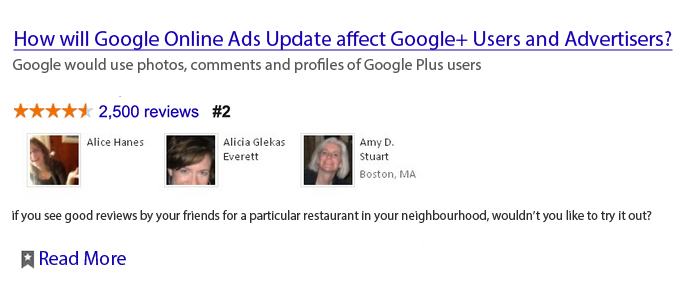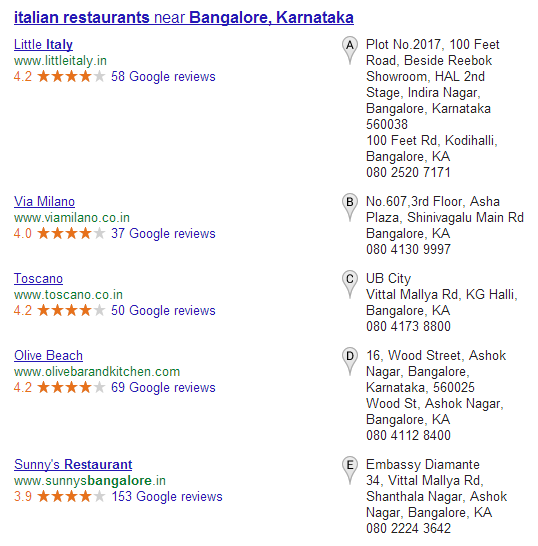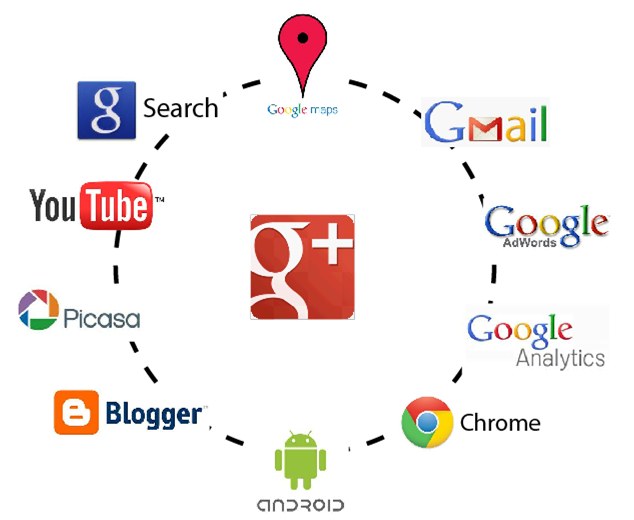
Google’s updated Online Ad Endorsements policy has been grabbing headlines for some time now. For those of you who haven’t heard about it, Google would use photos, comments and profiles of Google Plus users (who allow it) in their online ads, starting November 11. An option to opt out of this feature will also be provided to users. The announcement has baffled many as these “shared endorsements” might lead to privacy concerns. It would be somewhat similar to Facebook’s Sponsored Stories that you see in your newsfeed.
Google has tried in numerous ways, to integrate data across its products and services, to be able to create comprehensive portraits of its users for targeted advertising. It is just another one.
How will it feature?
The new terms for Google online ads will directly impact Google+ users. Their comments and recommendations on other Google services like Google Play and YouTube will be placed in their online advertisements, which will be available across the web.
In Google’s words…
“When it comes to shared endorsements in ads, you can control the use of your Profile name and photo via the Shared Endorsements setting. If you turn the setting to “off,” your Profile name and photo will not show up on that ad for your favorite bakery or any other ads. This setting only applies to use in ads, and doesn’t change whether your Profile name or photo may be used in other places such as Google Play.”
This simply means that a Google+ user’s endorsement, let’s say a mobile phone, can appear in an online mobile phone ad. This may include the user’s name, comments and photo. The image below, taken from the official Google+ website will give you an idea about how the ads will look on the web:

How will it impact Google+ users?
The first issue here is the control Google will have over their users. It really depends on how you look at privacy and how much content you want to share. Some might welcome the change while others might think it’s a violation of their privacy. For them of course, there is an opt-out option available. Sign in with your Google+ account and go to the ‘Shared Endorsements’ page. Once you get there, you can modify your settings by ticking or unchecking the box. The image below shows you the box you need to leave unchecked in case you want to opt-out

As mentioned before, it really depends on how important targeted advertisements are to you. A lot of people would benefit from it. Here’s how –
Example 1:

Example 2:
If you have been interested in a mobile phone for a long time – your friends’ reviews will surely have an impact on your buying decision!
Typically, if you have shared a specific Google+ page with only a small group (circle) of friends, then only those friends part of that circle will be able to see that action on Google online ads. Options like ‘private’ or ‘public’ posting would also come into play. However, reviews would pretty much be public so don’t leave reviews if you are uncomfortable with everyone else viewing it.
How will it impact advertisers?
Advertisers of course, have something to smile about – the data on Google online ads, which advertisers and marketers will have access to, will help them in numerous ways.
1. In case of B2C Firms:
Restaurant chains, electronic stores, retails outlets and so on are most definitely going to benefit from it, especially if their customer reviews are good. The image below shows the current Local organic results shown by Google. A search on Italian Restaurants in Bangalore show an overall review of the place. In future, these reviews will be available on the ads run by the respective establishments, along with the photos and comments made by Google+ users who have shared their views on that place.

2. In case of B2B Firms:
Typically, a recommendation from a fellow user convinces a business buyer (about a particular product or service) more than plain ads. Therefore, relevant click-through rates and conversions would increase when recommendations are supported by the faces of people a searcher knows.
According to a Google announcement, this is being done to help customers make better choices. The user of course, can control how widely his/her personal data is being shared for these “shared endorsements”. For instance, reviews and recommendations on Google+ can be seen by a small network but the same thing on the marketplace Google Play, can be seen by the general public. This basically means that it depends on the platform.
Google is expected to provide more information on how it will actually work soon as these terms and conditions will be implemented from November 11, 2013.

This ambitious move has drawn attention from all quarters. Privacy advocates are of the view that the Federal Trade Commission should review these terms to ensure customer privacy is not being violated.
The point here is that, the information Google requires for these endorsements were already being provided by its users all along, by way of reviews and comments. The only addition now is that these ‘reviews’ and ‘comments’ will be available to the users’ friends circle in the form of advertisements.
Unlike Facebook, hopefully Google will not have to pay $20 million as compensation for practically, the same thing.







